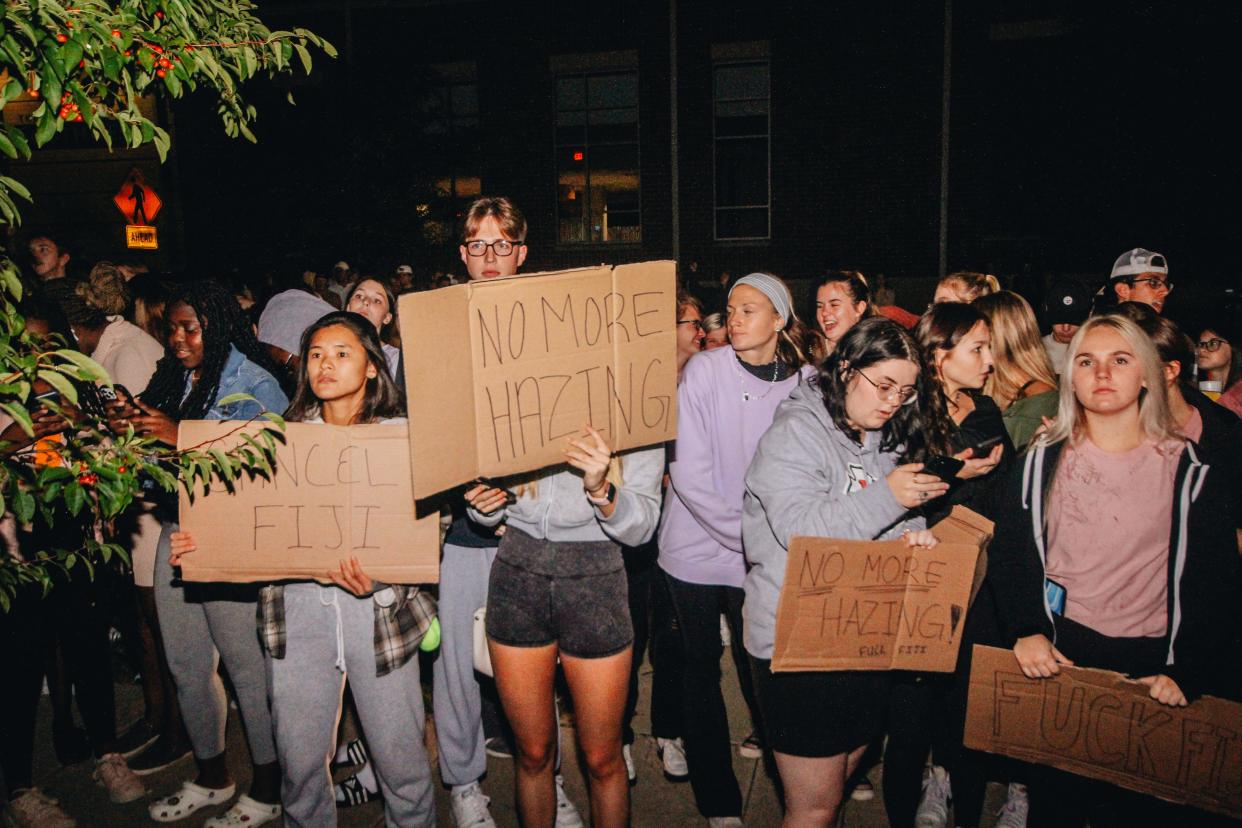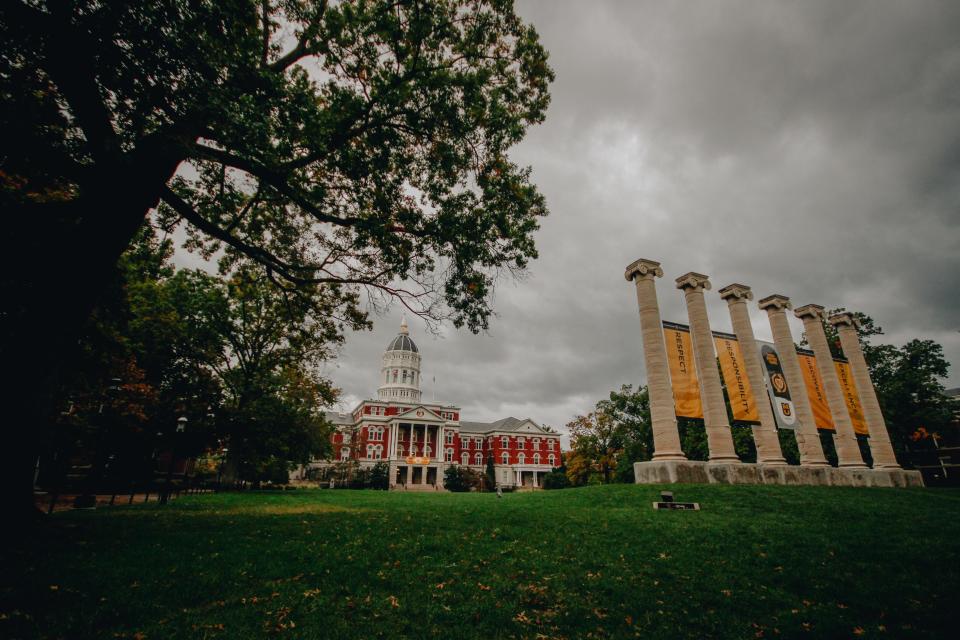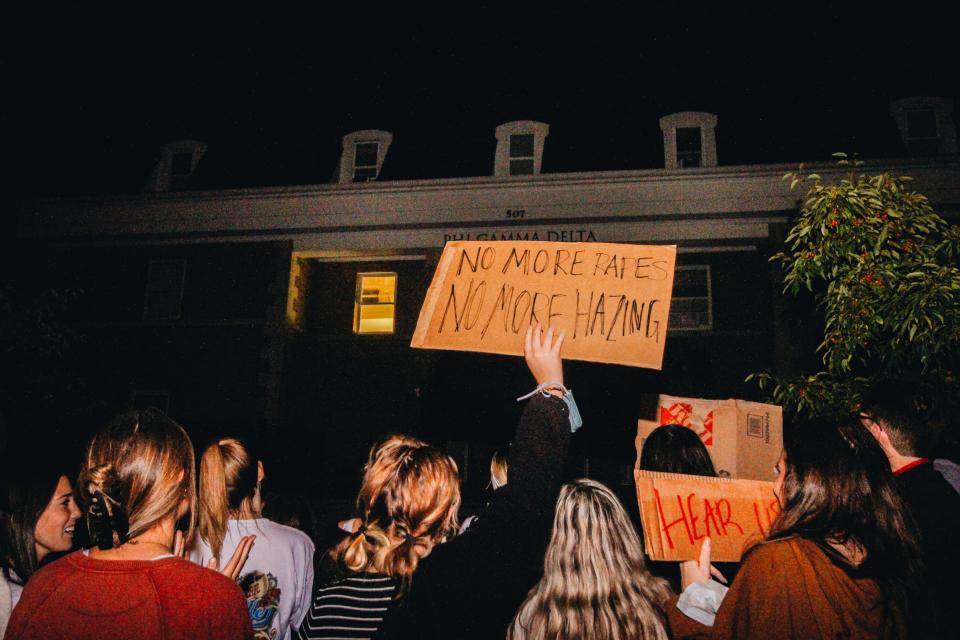Heavy alcohol consumption is entrenched in Greek life, MU Faculty Council report says

Heavy alcohol consumption is entrenched in Greek life on campus and the culture is resistant to change, states a report by a committee of the University of Missouri Faculty Council.
"It's really, really hard to change the culture of alcohol" in fraternities and sororities, said Phil Wood, MU psychology professor.
He's the outgoing chair of the faculty affairs and student affairs committee of the MU Faculty Council. The committee met with Jeff Zeilenga, former MU dean of students, the month after freshman Danny Santulli was hospitalized for alcohol poisoning resulting from a hazing incident at the Phi Gamma Delta fraternity house. The fraternity also is known as Fiji.
Santulli is at his parents' home in Minnesota, but unable to see, walk or communicate, according to the family's attorney.
Santulli's situation isn't unique and Wood provided a timeline of hazing incidents in Missouri that related to deaths and serious injuries dating back to 1980. It includes a 1990 MU Bid Day Bash incident in which 35 were injured, including a high school student who grabbed an electrical wire while drinking a can of beer while beer cans were being thrown at him.
More: Petition drive seeks justice for Danny Santulli and felonies for Mizzou Fiji members
MU student Brandon Zingale nearly died in a hazing incident in 2017.
Zeilenga retired at the end of the semester when he spoke with the committee.
One of the challenges, Zeilenga told the committee, is that MU allows freshmen students to live in Greek houses, which he called a hazard. Mizzou is one of only five institutions in the country that allows that, he told the committee.
At issue is that MU doesn't own the Greek houses, fraternities and sororities have built large houses and need to fill beds to pay mortgages, the report states.
MU established new rules for Greek groups in 2019, after a consultant recommended banning freshmen from chapter houses. A review found widespread instances of risky behavior and poor oversight by the university.
Under the new rules, freshmen would be allowed to continue to live in the houses for two years before Mizzou was to require Greek organizations to meet academic and conduct standards to continue the practice.
Because MU doesn't own the houses, that prevented it from making changes, Wood said.
Another point made by Zeilenga was that alumni are unwilling to change campus culture.
"These days, alcohol consumption on campus is much different than it used to be," Wood said.

Those most at risk based on his research are male first-generation students, he said.
Another issue: vendors are more interested in alcohol sales than student safety.
Also part of the report: Students in Greek organizations are eight times more likely to use fake IDs than other students. The use of fake IDs is linked to heavier drinking, according to research.
The report notes that Zeilenga was planning a "stop the hazing" event on campus in February, but Wood said that didn't happen.
Some students "train" for hazing events by drinking excess amounts to build up their alcohol tolerance. That issue is linked to research in the committee report.
Some students drink so much that it causes scarring of the throat, which leads to bleeding, Wood said.
More: Defendants in Missouri's Fiji hazing lawsuit settle with family of former pledge Danny Santulli
There's been some progress, the report states. The Greek housing that was most recently built is more appropriately sized.
The small change he would like to see is for Greek organizations to stop allowing alcohol in houses on Thursdays, Wood said.
That's based on his own research. The 2007 study "College Student Alcohol Consumption, Day of the Week and Class Schedule" was published in Alcoholism: Clinical and Environmental Research. It found high alcohol consumption on Thursdays, mitigated some by Friday classes before 10 a.m.
That study recommended increasing the number of early morning classes on Fridays.
Some in administration are working to improve the situation with hazing and alcohol consumption in Greek Life, Wood said.
The University of Missouri News Bureau provided this response to the committee report:
"The university is focused on improving a culture that exists across our campus, and many others across the country, regarding alcohol, other substances, and dangerous behaviors."

Holding people accountable is part of the solution, the university statement reads.
"In this case, the university withdrew recognition from the now-closed Phi Gamma Delta fraternity house last October and issued proposed disciplinary sanctions for 13 students this spring and the MU Police Department provided results of its investigation to the Boone County prosecutor’s office last December."
The university also has taken other steps in response.
"The university also launched a healthy community initiative to better understand our culture and behaviors to determine ways that we as a community can better educate and instill personal responsibility to prevent, curb, and confront dangerous behaviors," the statement reads. "MU also has partnered with national efforts dedicated to this purpose."
Santulli's family is dismissing the original 23 defendants from the lawsuit it filed after reaching settlements with them. Two new defendants have since been added to the lawsuit.
So far, misdemeanor criminal charges have been filed against one fraternity member. Santulli's family and an online petition drive that had more than 8,000 supporters on Wednesday afternoon are seeking felony hazing charges against those responsible.
Wood said he's not an attorney, but it's apparent to him that crimes have been committed in the case.
"It does seem like some charges should be brought," Wood said.
The effect of criminal prosecutions would depend on if it changes the mindset of alumnae and their tolerance for alcohol-fueled hazing events, Wood said.
Roger McKinney is the education reporter for the Tribune. You can reach him at rmckinney@columbiatribune.com or 573-815-1719. He's on Twitter at @rmckinney9.
This article originally appeared on Columbia Daily Tribune: Hazing involving alcohol is entrenched on Mizzou's campus, report says

